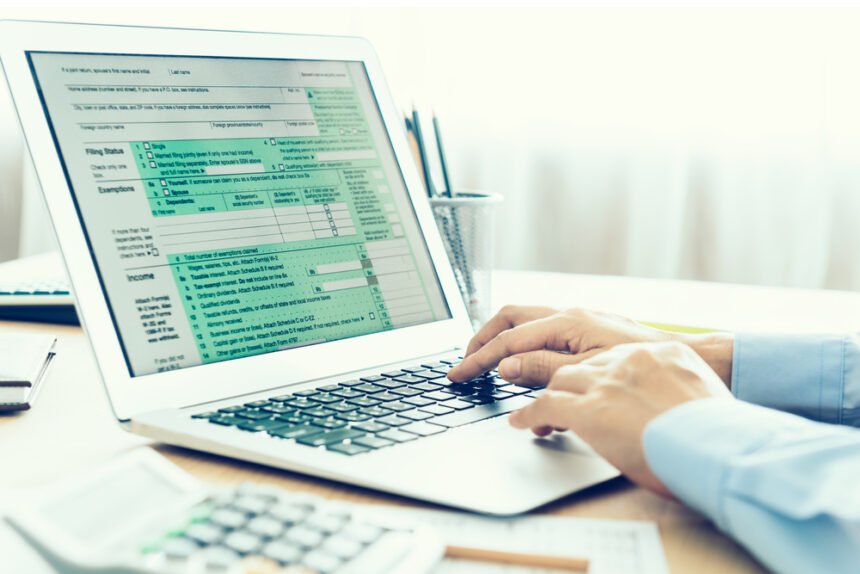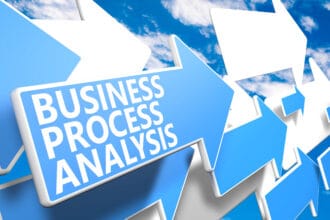AI technology offers a number of major benefits of small businesses and freelancers. The market for AI is projected to be worth nearly $1.6 trillion by 2030.
We have talked about how businesses are using AI for marketing and tools like ChatGPT to create content more easily. However, one of the other benefits of AI is that it can help with your taxes! This is important, since taxes are a huge pain for many business owners.
If you make $400 or more as a freelancer or small business owner, you must file taxes with the Internal Revenue Service (IRS). Self-employed taxpayers can register their business as a sole proprietorship, partnership, S Corporation, or LLC. C Corporations are not allowed to file taxes as freelancers or self-employed entities.
So, why not use new AI applications like the newest versions of TurboTax to assist with your taxes? This article will help you figure out what you should focus on and how AI tools can help.
How Can You Use AI to Maximize Your Tax Deductions as a Freelancer/Small Business Owner?
Freelancers and small business owners are self-employed and must manage their taxes and file with the IRS. If you are looking to maximize tax deductions, the IRS provides several ways to take advantage of legal methods.
We mentioned that the IRS is using AI to help fight tax evasion. However, businesses can also use AI to help manage their own taxes more easily.
Accounting and tax issues can be costly for businesses. However, artificial intelligence can help with their accounting needs, whether it’s a shared service center or a local bank. Advanced AI algorithms can reduce costs, save time, and improve ROI. It can also increase productivity and provide new information to support decision-making.
Before you know the eligible tax deductions, here are a few quick tips for planning tax filing as a freelancer or small business owner.
- Keep your personal and business financial records separate.
- Open a separate bank account/credit card for your business use.
- Maintain accurate books for your business income and expense transactions.
- Know the percentages/pro rata portions of business and personal expenses.
- Know the proper entity structure for tax deductions as a self-employed freelancer or business owner.
Let’s discuss some useful tax deductions for your small business or freelancing business.
1. Use AI to Deduct the Right Startup Costs
The IRS allows you to deduct certain expenses as startup business costs against any business loans or money you have raised.
“Common startup expenses include potential market research,” explains Jane Moore of money site, Loanza, “you also have surveys, initial travel costs, advertising for opening, salaries or wages paid to employees initially, and salaries paid to executives or consultants.”
Make sure not to include capital business expenses like purchasing property, vehicle, or business equipment” she continues – “ as startup costs, these are all capital expenditures.”
TurboTax now uses artificial intelligence to help customers get their highest possible refund. It recommends whether or not they would like to go through the itemized deduction process or not, saving users up to 40% of tax prep time. For the customers that do choose to itemize their taxes, TurboTax uses data analysis and machine learning to identify and recommend deductions, including obscure ones.
2. Deductions for Office Supplies and Tools
Small business owners can deduct the cost of goods sold (COGS) if they produce and sell products. Similarly, freelancers can deduct office supplies and tools like paper, ink, stationery items, books, note papers, pens, etc.
You can also deduct the cost of your AI-driven tax preparation software. Of course, you want to find a service that uses the right AI algorithms to assist with taxes.
The company also applies artificial intelligence technology to product development, speeding up the process of getting tax software to market each year with the latest tax codes and maximum accuracy. Artificial intelligence and machine learning simplify the process for customers by converting the complex 80,000 pages of the U.S. Federal tax code into an application.
3. Professional Membership and Legal Fees
Freelancers often have to pay a membership fee to provide services on a professional platform. You can deduct this fee to maximize your tax deductions.
Similarly, if you paid any legal or consultation fees to an attorney or business consultant, you can deduct it from your gross business income.
4. Home Office Business Deductions
Small business owners or freelancers work from home normally. The IRS allows you to deduct a portion of home expenses as your business costs.
You can use the dollar rate of $5 per square foot used for business activities or calculate the total area of your house and then find the proportional use for your business.
5. Self-Employed Tax Deductions
Self-employed must file their social security and medicare expenses as an employer and employee. They must file for the employer portion of self-employed taxes as well.
The social security tax rate is 12.4% and medicare is 2.9% for a total of 15.3%. You can then deduct half (7.65%) of this tax from your business income to reduce your tax liability.
6. Health and Business Insurance Deductions
If you are reluctant to pay for your family or business insurance plans, consider them as a business expense with applicable limits.
You can deduct your health insurance contributions for yourself, your spouse, and your dependent kids. Similarly, you can lower the tax bill by deducting the business insurance costs.
7. Utilities and Internet Expenses
A common way to maximize tax deductions is to include utilities like electricity, water, and phone service costs from business income.
You can also deduct the internet subscriptions used for business purposes.
8. Vehicle and Travel Expense Deductions
Buying or leasing a vehicle means it’s a capital expenditure. You can depreciate the total cost of a vehicle over its useful life by using one of the allowed methods by the IRS.
Similarly, you can deduct business travel expenses by following the instructions of the IRS.
9. Maximize Your Retirement Plan Contributions
If you make sufficient money, contributing to your retirement plans as a freelancer or small business is the best way to maximize tax deductions.
Contribution limits vary by a retirement plan and change often. For instance, the contribution limit for a solo 401(k) plan for 2023 is $66,000 plus the catch-up amount.
10. Other Important Tax Deductions to Know
Here are a few other useful tax deductions you should know.
- The cost of designing, hosting, and maintaining a business website.
- Advertising & Marketing costs of your business.
- Professional and Accounting Costs paid for your business.
- Financing Costs like interest paid on a business loan.
- Subscription or purchase costs for Software and Online tools.
- You can deduct eligible Charitable Contributions from your business income.
- Business Meals and Refreshments costs for business guests can be deducted up to certain limits.
Use AI Technology to Make Tax Planning Easier as a Business Owner
AI technology can be a huge boon for many business owners. One of the underappreciated benefits is that it can make tax planning easier. You want to take advantage of the benefits it provides.











